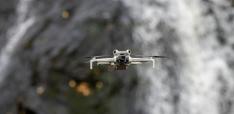North Korea: Calmer Waters Ahead?
“Something unusual seems to be happening in Pyongyang and it’s probably time to think about the future a bit more seriously. We are heading towards serious changes, and nobody seems prepared.”
Andrei Lankov (March, 2010)
Introduction
North Korea has been presenting the international community with challenges for 60 years now – and increasingly daunting ones since the end of the Cold War despite predictions of imminent regime collapse after the death of Kim Il-sung in 1994. “Resolving” North Korea would neutralise a noted nuclear proliferator and remove a major threat to regional security. Five factors which have been at the heart of why 2010 was always likely to be a particularly difficult year are encouraging Beijing to grasp the nettle of North Korea ever more firmly.
Market Machinations
First, and possibly foremost, is the state the economy. Decades of misguided policies, the collapse of the Soviet empire, a succession of famines and floods since the mid-1990s, and increasingly aggressive international sanctions had already brought it close to complete collapse even before the currency reform of the end of last year.
The reform continued the gradual reversal of economic liberalisations which had been permitted in the mid-1990s in response to the famines. Those liberalisations spurred the emergence of private markets or jangmadang. The currency reform had the immediate – and, probably, intended – effect of closing the jangmadang down.
East Asia expert Rüdiger Frank has speculated – plausibly – that the emergence of jangmadang and consequent partial monetisation of the economy was weakening the influence of the state and revealing inequalities in society to the point where “the same frustration that had brought socialism down in Europe began to grow in North Korea, dangerously, on a daily basis”. [2]
Equally plausibly (and not incompatibly), The Economist suggested that reining in the markets could have been part of a power struggle between the army, which the Korea Institute for National Unification in Seoul believes to be “the artery and backbone” of their growth, and North Korea’s civilian leaders. [3]
What is clear is that food supply even in Pyongyang collapsed within weeks – to the extent that the crack-down on private enterprise had had to be eased by early February. [4] So, as I witnessed personally when I visited Pyongyang in late March, the private markets are now functioning again – albeit at least partly on a hard currency basis.
Political Tensions
Secondly, domestic politics have been bumpy for the past two years since reports that Kim Jong-il was unwell first appeared in the South Korean press.
Around the time he returned into the public eye in April 2009, official North Korean newspapers released photos of all 12 senior members of the country’s top organ of power, the National Defence Commission (NDC) – a break from past practice when photos of only the chairman and vice-chairman had been released. This probably indicated a strengthened role for the military – apparently at the expense of the Workers Party of Korea (WPK), which also ceded control of three of North Korea’s main intelligence organs to the NDC at that time.
Earlier in the year, the South Korean news agency, Yonhap, had speculated that Kim Jong-il’s third son, Kim Jong-un, was to be his successor. The changes in the NDC may have been the price Kim Jong-il had to pay for the military’s agreement to another dynastic succession.
Over a year later, the succession question remains opaque. But Kim Jong-un’s succeeding his father would be consistent with a regime dependent in a personality cult built around Kim Il-sung and Kim Jong-il. However, given his youth and lack of experience, he would likely have to work with some sort of regent-type figure or figures such as General O Kuk-ryol, North Korea’s most senior military type, and/or Chang Sung-taek, Kim Jong-il’s brother-in-law who fell out of favour a few years ago but who was appointed to the powerful position of Vice-Chairman of the NDC last June.
One thing which is clear is that all eyes will be on a (rare) meeting of the politburo of the central committee of the WPK which has been called for “early September” and which is expected to oversee changes in the leadership – perhaps including the formal announcement of Kim Jong-il’s successor.
Shifts In Seoul’s Policy
Thirdly, South Korea under President Lee Myung-bak has taken a tougher line with Pyongyang since 2008 than was the case over the previous decade. As Christian Oliver wrote in the Financial Times recently: “For Kim Jong-il, the dictator who has led a few South Korean presidents round in circles, Mr Lee is a particular figure of hate because he has switched off most largesse to the North, ending the unconditional ‘sunshine policy’ of two previous liberal presidents”. [5]
Pyongyang could have (mis-)calculated that the 26 March sinking of the South Korean warship, the Cheonan, might have precipitated a change of heart on the part of South Korea’s President, determined to sustain his country’s recovery from the financial crisis and not to hazard the 11-12 November 2010 G20 summit in any way.
South Korea In The Limelight
Fourth, Pyongyang has an historical propensity to “bad behaviour” at times when South Korea is enjoying the international limelight, as it is this year thanks to its presidency of the G20. For all that, though, the sinking of the Cheonan was on a different scale entirely to anything we have seen since the downing of a South Korean airliner by a North Korean terrorist bomb just months before the 1988 Seoul Olympics.
Waving To Washington
Fifth, and finally, North Korea may again be indulging its well-established propensity for “bad behaviour” when it believes it is not getting the attention it deserves from the outside world.
Since his appointment in February 2009, US Special Representative for North Korea policy, Stephen Bosworth, has been working towards getting the North Koreans to the negotiating table. [6] Furthermore, Mr Bosworth has not been alone in his efforts – witness, in particular, former President Bill Clinton’s visit to Pyongyang in August 2009 when he secured the release of two detained American journalists. [7] But that may not be enough to prevent Pyongyang from feeling short-changed since (an otherwise engaged) Barack Obama stepped into the White House in January 2009.
At A Turning Point?
On 9 July, the UN Security Council formally and unanimously condemned the sinking of the Cheonan. But, despite the unambiguous findings of the Multinational Enquiry into the causes of the sinking, the UNSC failed explicitly to point the finger of blame at North Korea. This outcome represents a minor victory for Pyongyang and for Beijing but risks not drawing a definitive line under the incident.
Against this background, events could go in one – or both – of two directions. Firstly, that they have effectively got away with it may encourage more bad behaviour from the North Koreans, safe in the knowledge that: Beijing would protect them from any serious potential consequences of their actions; and that options for retaliation against North Korean malfeasance are limited. Secondly, by easing – or, at least, not escalating – tensions on the Korean peninsula, the possibility of drawing North Korea back into the six-party dialogue may be increased.
Beijing’s Balancing Act
China’s public policy of “strategic ambiguity” has come under increasing strain of late, as was underlined in May 2009 when Beijing acquiesced to further UN sanctions against North Korea.
Strategic and, increasingly, commercial reasons for sustaining the regime have to be weighed against the damage North Korean malfeasance can do to Beijing’s relations with Washington and Seoul.
For the time being, however, Beijing will give Pyongyang enough practical support and diplomatic cover to shore up the regime. Furthermore, Kim Jong-il likely calculates that he can continue to push the envelope when it suits him. In other words, North Korea – believing that, in China’s strategic calculus, it is “too big to fail” – effectively presents China with the sovereign equivalent of “moral hazard” dilemma.
North Korea – believing that, in China’s strategic calculus, it is “too big to fail” – effectively presents China with the sovereign equivalent of “moral hazard” dilemma.
Nevertheless, China is likely to exert considerable pressure on North Korea to desist from further bad behaviour (especially in the run-up to the G20 summit); and to resume the six-party process sooner rather than later. However, the internal and external pressures with which the North Korean regime is struggling are only likely to get worse; and Pyongyang’s track record, especially over the past 18 months, therefore makes it extremely unwise to rule out further serious incidents – missile launches, a third nuclear test, naval or (worse) land clashes.
Nevertheless, the balance of probabilities suggests to us that we are likely to see a period of relative (to the past six months) calm on the Korean peninsula for at least the remainder of this year, including a possible resumption of the six-party process.
No Short-Term Solutions
In the longer run (ie into next year), even if the six-party process does resume, Pyongyang can be expected to continue to prevaricate and procrastinate – albeit while finding it much harder to extract something for nothing than has been the case in the past.
Against this background, disorderly regime collapse cannot be ruled out even though this is not a prospect which any of the regional powers would welcome – including South Korea for which the potential cost of reunification significantly outweighs the cost to West Germany of German reunification. [8]
Engineered Regime Evolution – The Least Bad “Solution”?
Assuming North Korea manages to avoid regime collapse what then is likely to happen in the coming, say, five years?
Given China’s strategic and commercial interests in North Korea, Beijing appears to be looking to “engineer” changes aimed at bringing the regime in Pyongyang more firmly under its control. The key to that could be the existing close relations between the military of the two countries through which North Korea’s military were encouraged to push the civilian regime in directions favoured by Beijing.
However, such an approach may not be without its risks for Beijing. Senior North Korean officials repeatedly aver that China has “betrayed socialism” and that North Korea “should never go down that path”; and factory managers complain about what they claim is Chinese “exploitation” of their workers. Thus, even if greater Chinese involvement in North Korea were to bring about improved living standards for the average citizen, it could still be seen as “neo-imperialistic” and therefore resented.
Furthermore, it is by no means clear that de facto governance by Beijing of North Korea would be entirely welcome in Seoul, Tokyo or Washington.
Nevertheless, this may be the least bad outcome and the only feasible one which is likely to bring significantly greater – and, hopefully, durable – stability to the Korean peninsular in the short- to medium-term.
Alastair Newton is Senior Political Analyst at Nomura International plc. The views expressed in this article are those of the author and do not necessarily represent those of Nomura International plc.
NOTES
[1] The photograph of the Kim Il-sung memorial in Pyongyang was taken by Alastair Newton with permission from local officials.
[2] North Korea’s currency reforms: risky return to a money-less society” by Rüdiger Frank, East Asia Forum, 14 March 2010.
[3] “Not Waving. Perhaps Drowning”, The Economist, 29 May 2010.
[4] “Market forces 1, brute force 0”, The Economist, 11 February 2010.
[5] “Bulldozer at the brink” by Christian Oliver, Financial Times, 29/30 May 2010.
[6] “North Korea politics: The US tests the water on talks”, Economist Intelligence Unit, 10 February 2010.
[7] “N Korea Releases U.S. Journalists” by Glenn Kessler, Washington Post, 5 August 2009.
[8] “Simple calculation and its implication for Korean reunification” by Mun and Yang (Bank of Korea, 2007 – in Korean)
REFERENCES
“North Korean Paradoxes: Circumstances, Costs, and Consequences of Korean Unification” by Charles Wolf Jr and Kamil Akramov (RAND Corporation, 2005)
“North Korea: Through A Glass Darkly” by Alastair Newton and Young Sun Kwon, Nomura Global Economics, 26 May 2010
“North Korea under Tightening Sanctions”, International Crisis Group Asia Briefing No 101 (15 March 2010)
“Nothing to Envy: Real Lives in North Korea” by Barbara Demick (Granta, 2010)
“Red Rogue” by Bruce E Bechtol Jr (Potomac Books, 2007)
“Responding to Change on the Korean Peninsula” by Bonnie S Glaser and Scott Snyder (Center for Strategic & International Studies, 6 May 2010)
“Simple calculation and its implication for Korean reunification” by Mun and Yang (Bank of Korea, 2007 – in Korean)
“Shades of Red: China’s Debate over North Korea”, International Crisis Group Asia Report No 179 (2 November 2009)
“The Cleanest Race: How North Koreans See Themselves – And Why It Matters” by B R Myers (Melville House, 2010)
“This is Paradise: My North Korean Childhood” by Hyok Kang (Abacus, 2007)


